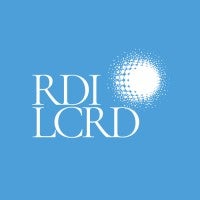CIRS is participating in the Rare Diseases International-Lancet Commission on Rare Diseases (RDI-LCRD), which aims to catalyse global recognition and action for people living with a rare disease, driving systemic change to achieve Global Health 2035 goals and Universal Health Coverage.
The RDI-LCRD is a new initiative dedicated to improving the lives of Persons Living with a Rare Disease (PLWRD) globally by generating evidence informed recommendations that can be implemented in all countries. The RDI-LCRD, initiated and hosted by RDI and chaired by Dr. Roberto Giugliani (Brazil) and Dr. Kym Boycott (Canada), brings together 27 Commissioners from 6 continents with a broad range of expertise, perspectives, and experience from fields including academia, clinical practice, health economics, and patient advocacy. As one of the Commissioners, Anna Somuyiwa (Head of CIRS) will provide CIRS insights on the regulatory and HTA landscape for rare diseases, including the views of regulators, HTA agencies and pharmaceutical companies, into the Commission’s work.
The RDI-LCRD launch coincides with two significant milestones for the rare disease community. This week marks both the start of the month of Rare Disease Day (February 28th) and the opening of the meeting of the World Health Organization (WHO) Executive Board, comprised of 34 Member States, where the World Health Assembly (WHA) Resolution on Rare Diseases will be discussed. The WHA Resolution on Rare Diseases, currently co-sponsored by 21 Member States, will call upon the WHO to develop a 10-year Global Action Plan on Rare Diseases. This presents a momentous opportunity for rare diseases to become a global health priority after many years of being neglected and overlooked. This sets the context for the RDI-LCRD to inform government policies and actions, and to provide stakeholders with the data, insights and recommendations they need to implement the future Resolution and Global Action Plan at the regional, national and local levels.
PLWRD around the world continue to face challenges tied to the lack of visibility and recognition of rare diseases, leading to inequities in diagnosis, care, and support. Data on rare diseases is often sparse and fragmented, making it difficult to assess the true burden of rare diseases. The Commission will take a holistic and multidimensional approach to enhance the visibility of rare diseases and PLWRD. The RDILCRD will make specific actionable recommendations across five key areas, each supported by dedicated working groups: ethics and morals, data and metrics, societal and healthcare systems, clinical pathways, and healthcare professional competency. PLWRD will be essential partners in the RDI-LCRD: the working groups will invite PLWRD to share their knowledge and experience and identify the services, information, and supports they most need and want.
The Lancet Commission on Rare Diseases represents a pivotal opportunity to address the pressing needs of PLWRD and advocate for their inclusion in healthcare systems globally. The Commission seeks to generate robust data which can be used to inform concrete recommendations that can be implemented around the world and adapted to the local environment. The overarching goal of the RDI-LCRD is to ignite global action that will amplify the voices of PLWRD and ensure that they are seen, heard, and cared for, no matter where they live.

